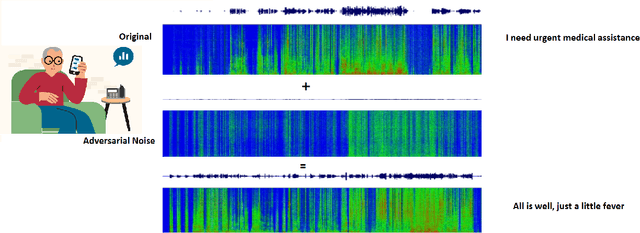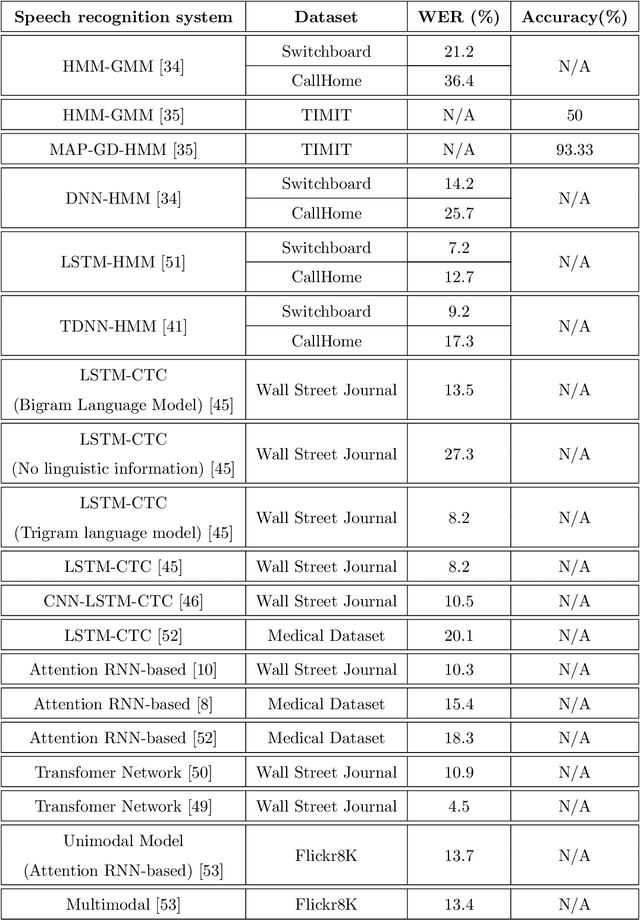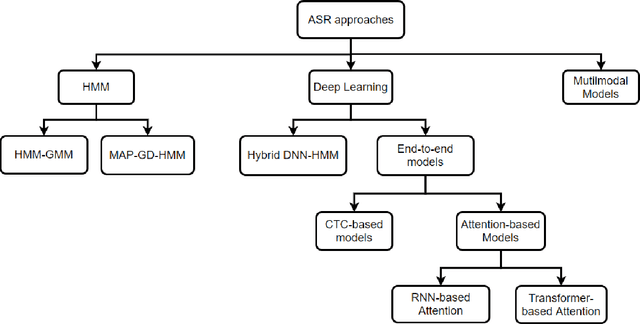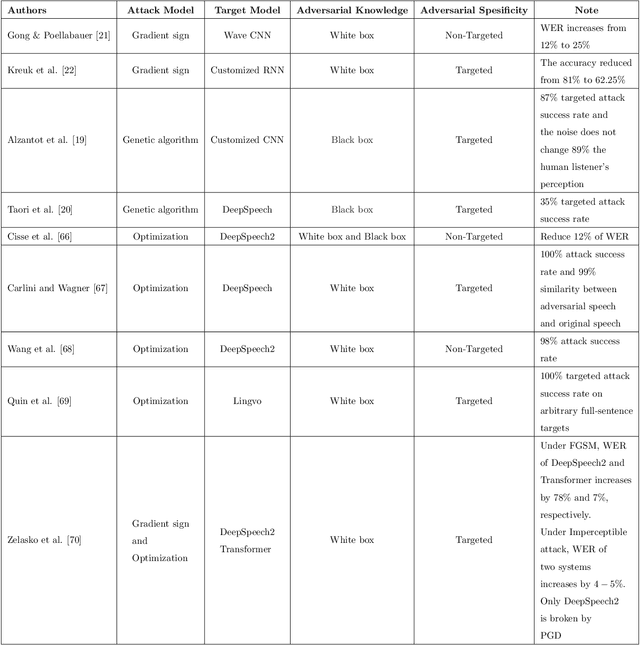Adversarial Attacks on Speech Recognition Systems for Mission-Critical Applications: A Survey
Paper and Code
Feb 22, 2022



A Machine-Critical Application is a system that is fundamentally necessary to the success of specific and sensitive operations such as search and recovery, rescue, military, and emergency management actions. Recent advances in Machine Learning, Natural Language Processing, voice recognition, and speech processing technologies have naturally allowed the development and deployment of speech-based conversational interfaces to interact with various machine-critical applications. While these conversational interfaces have allowed users to give voice commands to carry out strategic and critical activities, their robustness to adversarial attacks remains uncertain and unclear. Indeed, Adversarial Artificial Intelligence (AI) which refers to a set of techniques that attempt to fool machine learning models with deceptive data, is a growing threat in the AI and machine learning research community, in particular for machine-critical applications. The most common reason of adversarial attacks is to cause a malfunction in a machine learning model. An adversarial attack might entail presenting a model with inaccurate or fabricated samples as it's training data, or introducing maliciously designed data to deceive an already trained model. While focusing on speech recognition for machine-critical applications, in this paper, we first review existing speech recognition techniques, then, we investigate the effectiveness of adversarial attacks and defenses against these systems, before outlining research challenges, defense recommendations, and future work. This paper is expected to serve researchers and practitioners as a reference to help them in understanding the challenges, position themselves and, ultimately, help them to improve existing models of speech recognition for mission-critical applications. Keywords: Mission-Critical Applications, Adversarial AI, Speech Recognition Systems.
 Add to Chrome
Add to Chrome Add to Firefox
Add to Firefox Add to Edge
Add to Edge